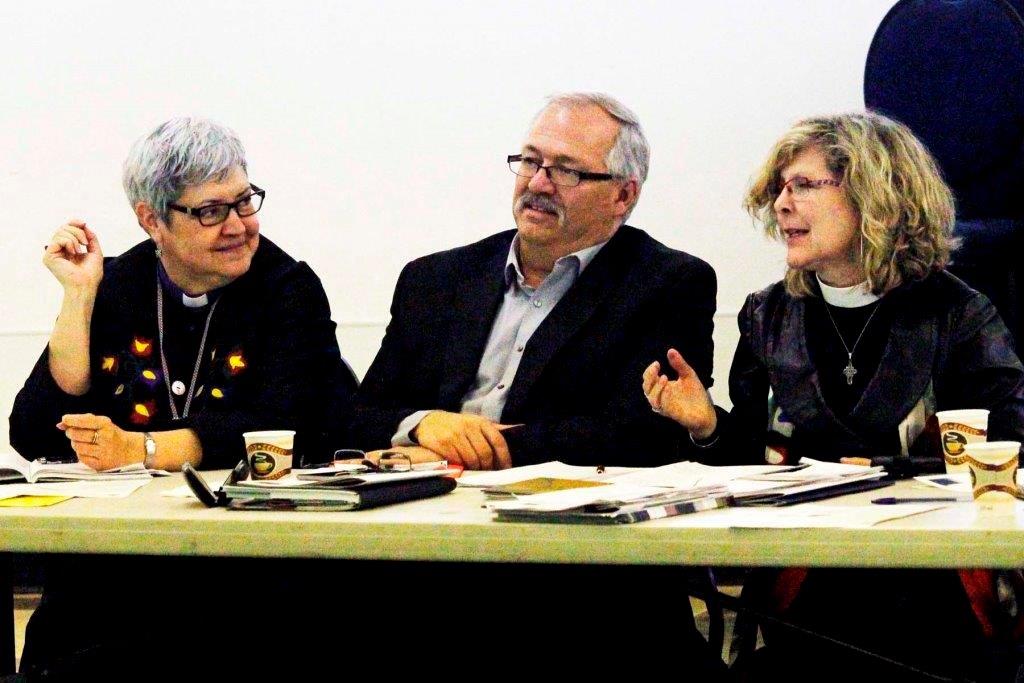Three leaders from member denominations of the Canadian Council of Churches (CCC) are travelling across the country for Justice Tour 2015, which is focused on the issues of climate justice and ending poverty.
Rev. Dr. Susan Johnson, national bishop of the Evangelical Lutheran Church in Canada; Rev. Dr. Willard Metzger, executive director of Mennonite Church Canada; and Rev. Dr. Karen Hamilton, general secretary of the Canadian Council of Churches visited four cities in April and will be in Kitchener-Waterloo, Ont., Halifax, Montreal and Ottawa between May 10 and May 13. Their plan is to use what’s been heard and learned on the tour to develop a church leaders’ pastoral statement. This will engage Canadians during a year that features a federal election and the United Nations climate conference in Paris.
Bishop Johnson said that she has been moved on the tour by the commitment and creativity that she is seeing among people of faith, not to mention the goodwill in their work addressing poverty, climate justice and Indigenous rights. “We heard from the beginning,” she said, “that you cannot separate these three issues.”
When asked what the tour might accomplish, Rev. Metzger said: “We will be accountable for the things we have heard. The responsibility to share this with other church leaders and elected officials can serve to prompt calls for increased action.”
Rev. Hamilton added: “I was honored [in Edmonton] to be given an eagle feather with the statement that I was trusted to make a difference. God help me live up to that trust. There is determination here to truly make a difference together.”
The tour raises some interesting questions. Do faith groups in contemporary Canada have anything significant to say about debates in the public square? If so, are they seen as credible or important actors in those debates? In previous years, various inter-church coalitions were successful in helping to end apartheid in South Africa, in protecting human rights in Latin America and in standing in solidarity with Indigenous people threatened by mega-resource developments in Northern Canada — this, at a time when their land claims had not yet been settled.
But for a variety of reasons, faith groups have encountered some lean years when it comes to their public influence. There is, however, much social, community and spiritual capital remaining in churches, whose members volunteer in communities and donate to causes and charities in disproportionately high numbers. As such, faith groups continue to have a moral authority and, at their best, an uplifting vision based upon the love of neighbour.
In late April, Pope Francis convened a summit of religious leaders and scientists to discuss what can be done about climate change. UN Secretary General Ban Ki-Moon also attended, saying that religious leaders and their followers must play a “substantively important role” in the climate change debate. So Canadian churches who are challenging their own adherents to confront climate change, poverty and exclusion appear to be in step with a growing international movement.
This post appeared on a United Church Observer blog on May 7, 2014.



